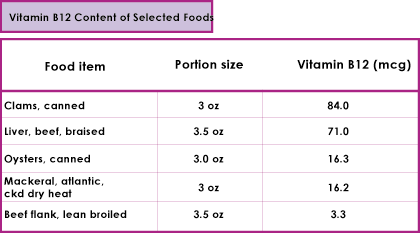Suggestions
Use up and down arrows to review and enter to select.Please wait while we process your payment
If you don't see it, please check your spam folder. Sometimes it can end up there.
If you don't see it, please check your spam folder. Sometimes it can end up there.
Please wait while we process your payment

By signing up you agree to our terms and privacy policy.
Don’t have an account? Subscribe now
Create Your Account
Sign up for your FREE 7-day trial
Already have an account? Log in
Your Email
Choose Your Plan
Individual
Group Discount
Save over 50% with a SparkNotes PLUS Annual Plan!
 payment page
payment page
Purchasing SparkNotes PLUS for a group?
Get Annual Plans at a discount when you buy 2 or more!
Price
$24.99 $18.74 /subscription + tax
Subtotal $37.48 + tax
Save 25% on 2-49 accounts
Save 30% on 50-99 accounts
Want 100 or more? Contact us for a customized plan.
 payment page
payment page
Your Plan
Payment Details
Payment Summary
SparkNotes Plus
You'll be billed after your free trial ends.
7-Day Free Trial
Not Applicable
Renews April 30, 2024 April 23, 2024
Discounts (applied to next billing)
DUE NOW
US $0.00
SNPLUSROCKS20 | 20% Discount
This is not a valid promo code.
Discount Code (one code per order)
SparkNotes PLUS Annual Plan - Group Discount
Qty: 00
SparkNotes Plus subscription is $4.99/month or $24.99/year as selected above. The free trial period is the first 7 days of your subscription. TO CANCEL YOUR SUBSCRIPTION AND AVOID BEING CHARGED, YOU MUST CANCEL BEFORE THE END OF THE FREE TRIAL PERIOD. You may cancel your subscription on your Subscription and Billing page or contact Customer Support at custserv@bn.com. Your subscription will continue automatically once the free trial period is over. Free trial is available to new customers only.
Choose Your Plan
For the next 7 days, you'll have access to awesome PLUS stuff like AP English test prep, No Fear Shakespeare translations and audio, a note-taking tool, personalized dashboard, & much more!
You’ve successfully purchased a group discount. Your group members can use the joining link below to redeem their group membership. You'll also receive an email with the link.
Members will be prompted to log in or create an account to redeem their group membership.
Thanks for creating a SparkNotes account! Continue to start your free trial.
We're sorry, we could not create your account. SparkNotes PLUS is not available in your country. See what countries we’re in.
There was an error creating your account. Please check your payment details and try again.
Please wait while we process your payment

Your PLUS subscription has expired
Please wait while we process your payment
Please wait while we process your payment

Vitamin B12, or cobalamin, is a coenzyme for methylmalonyl-CoA mutase and methionine synthetase. Methionine synthetase is involved in the synthesis of DNA and RNA via purine and pyrimidines. The enzyme influences the entry of folate into cells. Folate demethylates by the conversion of homocysteine to methionine via methionine synthetase. The enzyme methylmalonyl-CoA mutase is involved in the conversion of propionic to succinic acid, a factor of fatty acid metabolism.
Vitamin B12 has a high affinity for glycoproteins. Intrinsic factor is a glycoprotein that is secreted by the gastric cells and is required for absorption of vitamin B12. It moves into the ileum where it is absorbed. The vitamin is transported to cells by a protein carrier called transcobalamin I.
Megaloblastic anemia is a condition that results from a deficiency in B12. It is actually a deficiency in intracellular folate accompanied by B12 deficiency. Vitamin B12 deficiency can also result in neuropathy and with high homocysteine levels. Causes of B12 deficiency are: malabsorption, pancreatic insufficiency, pernicious anemia, AIDS, and an abnormal connection between the colon and small intestine.
The 1999 recommendations for vitamin B12 intake are: 0.4-0.5 mcg for infants, 0.9-1.8 mcg for children, 2.4 mcg for adults, 2.6 mcg for pregnant women, and 2.8 mcg for lactating women.
Vitamin B12 is only found in animal tissue. Liver is the primary source of vitamin B12. Other sources are meat and fish.

Vitamin B12 injections are commonly given intramuscularly by physicians to prevent pernicious anemia. Oral vitamin B12 can be used effectively in raising serum vitamin B12 levels. Other indications for which supplemental B12 has been used are AIDS, Alzheimer's disease, asthma, and depression, although scientific information is limited.
Please wait while we process your payment

